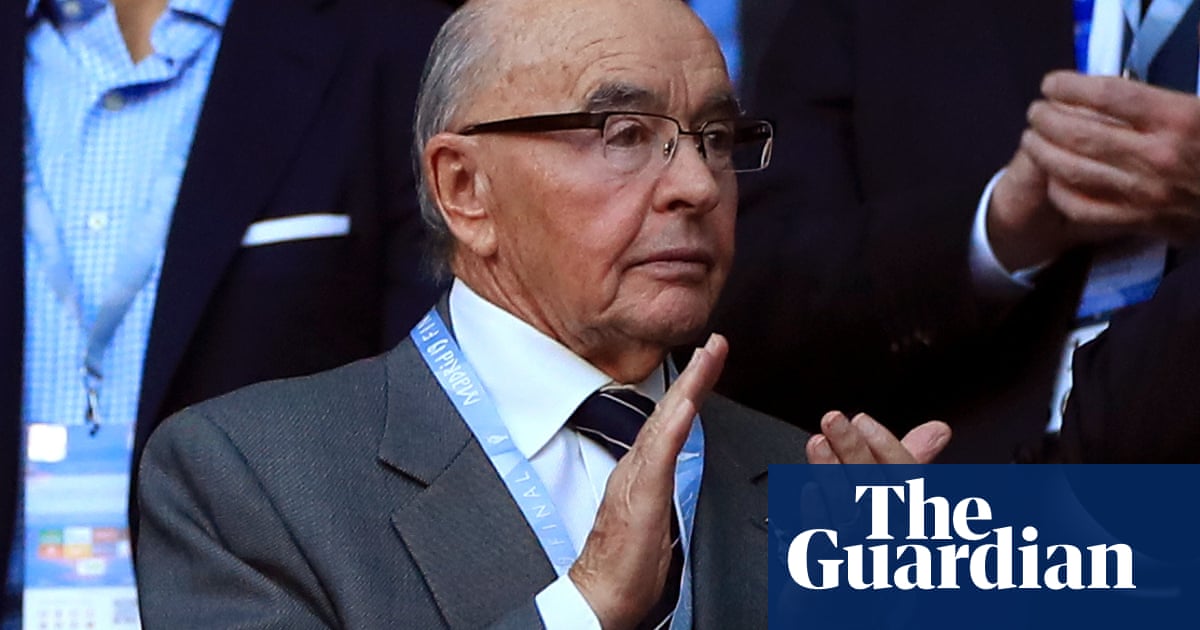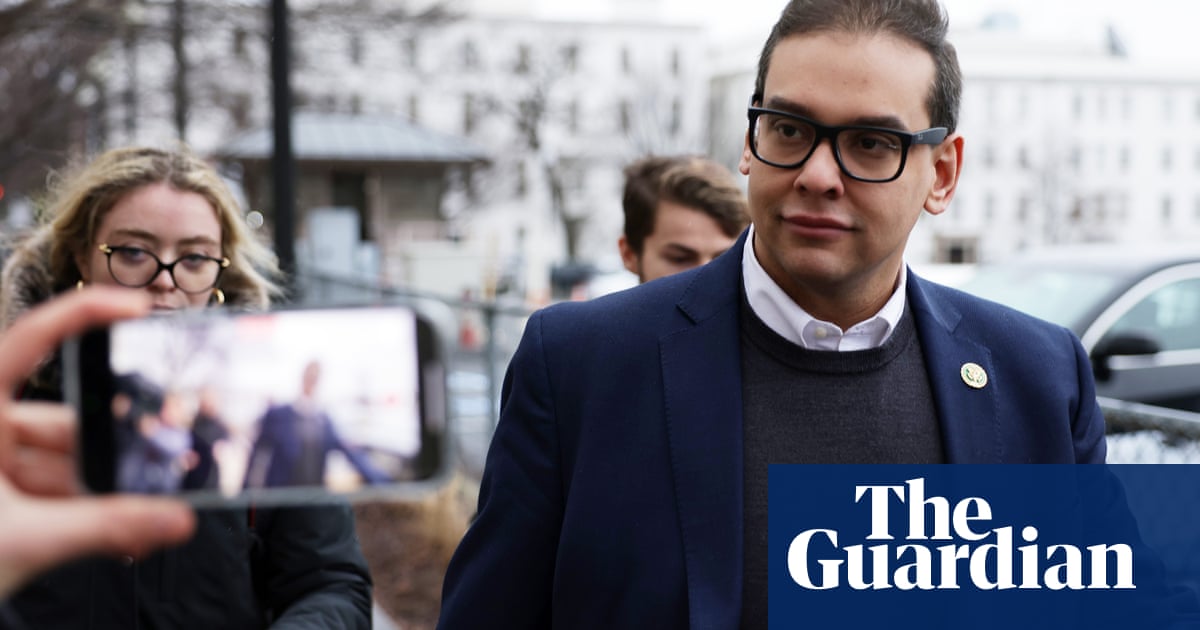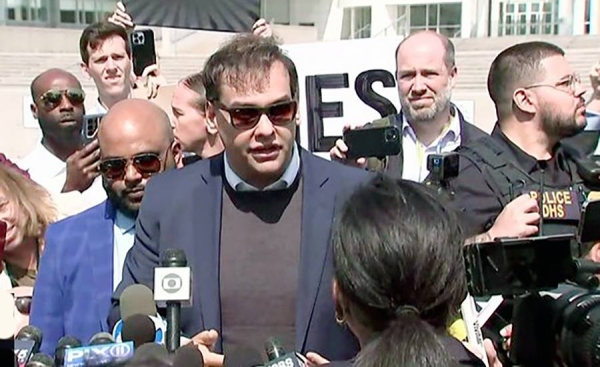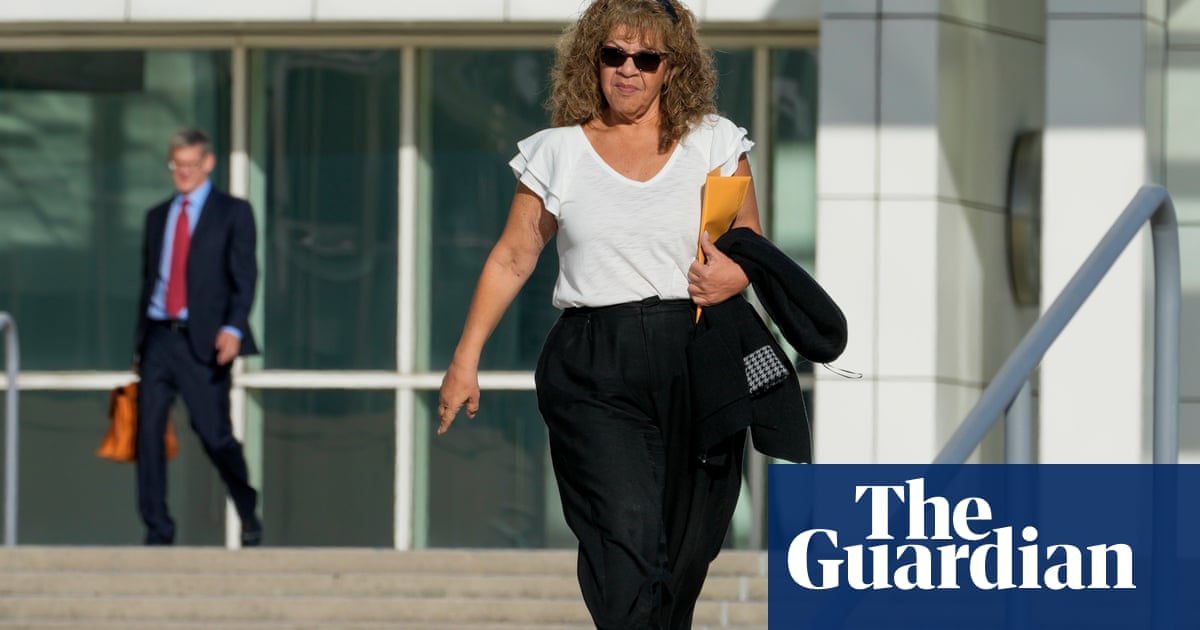
Former Trump campaign manager Steve Bannon pleaded not guilty on Thursday hours after being arrested on a luxury yacht for allegedly skimming donations from an online fundraising campaign for the president’s controversial border wall with Mexico.
Using a non-profit organization that he controlled, Bannon “received over $1m from the ‘We Build the Wall’ online campaign, at least some of which he used to cover hundreds of thousands of dollars in [his] personal expenses”, federal prosecutors in New York allege.
Wearing a white face mask, and looking sunburnt, Bannon appeared briefly in a federal court in downtown Manhattan just after 4pm ET, and his lawyer entered a not guilty plea.
Bannon was arrested at about 7.15am ET on a yacht off the coast of Connecticut, it was said in court, and he was brought to New York city several hours later.
Bannon will now be released on a $5m bond, backed by $1.75m in cash or real estate. He has until 3 September to get this collateral together, and is expected to leave the courthouse later Thursday, with photographers and reporters waiting to greet him.
The judge also said one bail condition was that Bannon would have “no use of private planes or private yachts or boats”, which follows reports he was arrested on the yacht of a Chinese businessman, who the New York Times reported was Guo Wengui.
The court appearance follows the announcement of the charges earlier on Thursday.
Three other men, Brian Kolfage, Andrew Badolato and Timothy Shea, were also arrested in this alleged scheme to defraud the non-profit, which authorities said raised more than $25m.
The charges, made by the Department of Justice’s southern district of New York (SDNY), were contained in an indictment unsealed in Manhattan federal court.
Federal prosecutors alleged that Bannon and three others “orchestrated a scheme to defraud hundreds of thousands of donors”.
According to the indictment, promises were made that 100% of the donated money would be used for the project.
But it alleged they faked invoices and sham “vendor” arrangements, among other ways, to hide what was really happening.
The men are facing one count each of conspiracy to commit wire fraud, and one count of conspiracy to commit money laundering. Each count has a maximum prison sentence of 20 years.
Bannon was chief executive officer of Trump’s election campaign in its final months in 2016 and later served as the president’s chief strategist for seven months during the turbulent early phase of the administration. He was fired as a top adviser to the president in the summer of 2017, though recently Trump is said to have been talking about him positively.
After the indictment was unsealed, the White House press secretary, Kayleigh McEnany, distanced the president from the scheme, saying he had “not been involved” with Bannon since the campaign and the early part of the administration, and he did not know the other people.
She said: “As everyone knows, President Trump has no involvement in this project and felt it was only being done in order to showboat, and perhaps raise funds. President Trump has previously and publicly stated the following: ‘I disagreed with doing this very small (tiny) section of wall, in a tricky area, by a private group which raised money by ads. It was only done to make me look bad, and perhaps it now doesn’t even work.’”
It has been previously reported by the New York Times that the president had given the private project his blessing.
Latest Trump associate to face prosecution
The arrests make Bannon the latest addition to a startlingly long list of Trump associates who have been prosecuted, including his former campaign chair Paul Manafort, his longtime lawyer Michael Cohen and his former national security adviser Michael Flynn.
Trump has also made clear that he is willing to use his near-limitless pardon power to help political allies escape legal jeopardy, most recently commuting the sentence of his longtime political adviser Roger Stone.
The attorney general, William Barr, told the Associated Press he had been made aware of the investigation into Bannon months ago but did not say whether Trump had been informed.
In a statement, acting US attorney Audrey Strauss said that the fund capitalized on donors’ interest in building a border wall while instead funneling millions of dollars to fund the “lavish lifestyle” of We Build the Wall founder and public face Brian Kolfage.
Philip Bartlett, inspector in charge of the US Postal Inspection Service’s (USPIS) New York field office, which was a partner on this investigation, said: “As alleged, not only did they lie to donors, they schemed to hide their misappropriation of funds by creating sham invoices and accounts to launder donations and cover up their crimes, showing no regard for the law or the truth.”
The We Build the Wall campaign started in 2018 as a GoFundMe by Kolfage, a military veteran, who has described some people crossing the southern border without documents as terrorists and drug traffickers and accused border wall critics as being cartel collaborators. The campaign created a video posted on YouTube of construction of metal barricades to attract anti-immigrant donors to the campaign.
After Kolfage brought Bannon and Badolato into the fundraising campaign,
“within days”, the pair gained “significant control” of this fundraiser, such as its messaging, donor outreach and finances, according to the indictment.
By spring 2019, the group had raised $22m out of its $1bn goal.
In a secret deal with the others, Kolfage, it was alleged, “covertly took for his personal use more than $350,000 in funds that donors had given to We Build the Wall”. To hide this, the men “devised a scheme” to direct money siphoned from We Build the Wall to Kolfage through a non-profit and a shell company that Shea controlled, using bogus invoices and “sham” vendor agreements.
Kolfage used the money for expenses, such as “home renovations, payments toward a boat, a luxury SUV, a golf cart, jewelry, cosmetic surgery, personal tax payments and credit card debt”. The other men each siphoned “hundreds of thousands” in donations, it was said, which they used on personal expenses such as “travel, hotels, consumer goods and personal credit card debts”.
When the men realized that they might be under federal investigation in October 2019, they tried hiding their scheme, using encrypted messaging apps.
Last year, the campaign was seen by the Guardian building a private border wall in south Texas despite a court injunction that ordered the work to be suspended.
“No one is above the law, not even a disabled war veteran or a millionaire political strategist,” said Bartlett, of USPIS.
Trump’s promise to build a wall across the 2,000-mile length of the US border with Mexico was a central part of his campaign to be president and supporters regularly chant “build the wall” at his rallies. Despite fierce opposition in Congress from Democrats, the Trump administration has pledged to erect or replace 450 to 500 miles by the end of 2020, at a cost of almost $18.5bn. While meeting this target is in doubt, construction of the wall has continued in some areas despite the coronavirus pandemic.
The White House said on Thursday 300 miles of border wall had been built, adding: “Our southern border is more secure than it has ever been.”
The Associated Press contributed reporting











